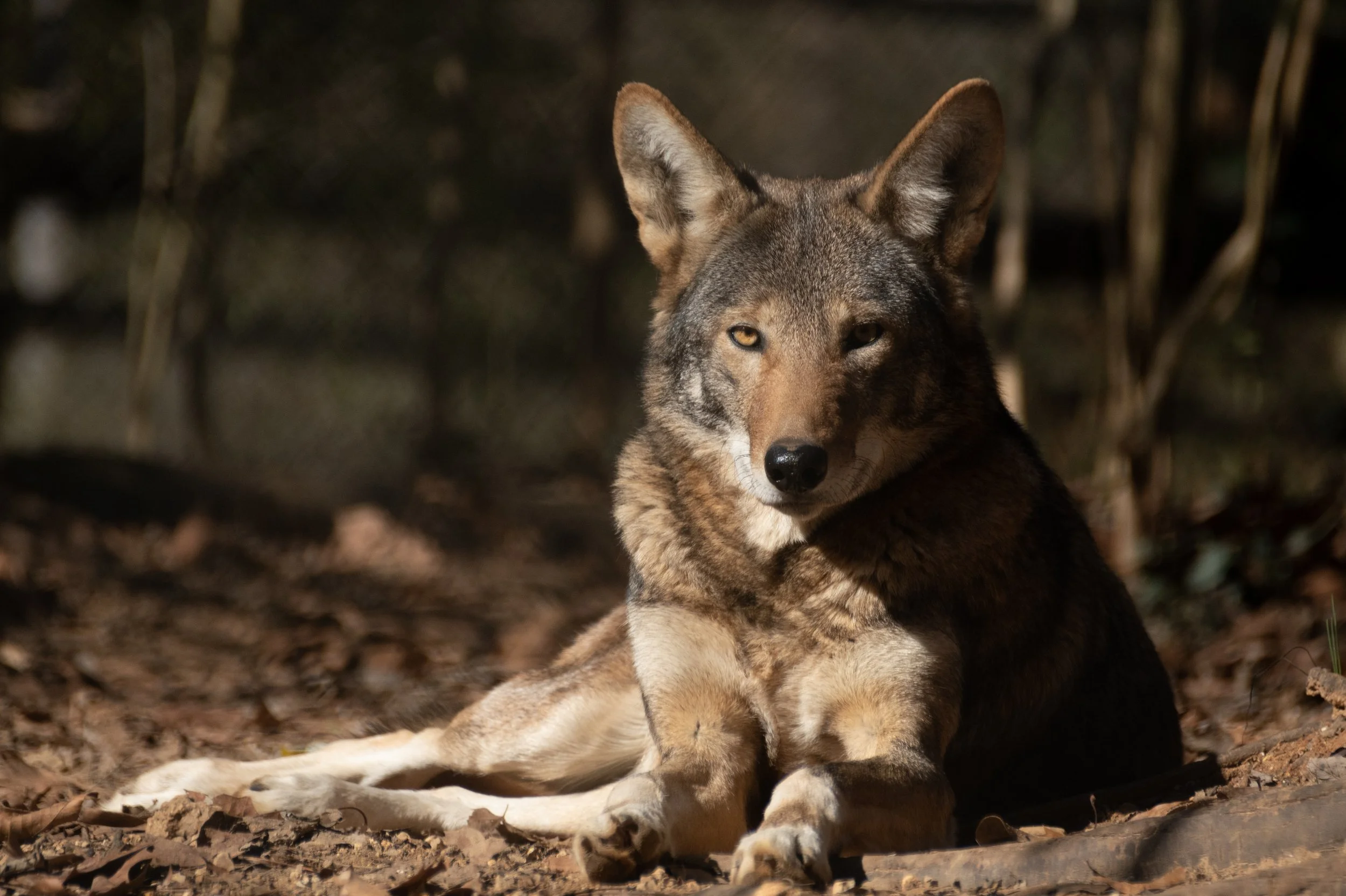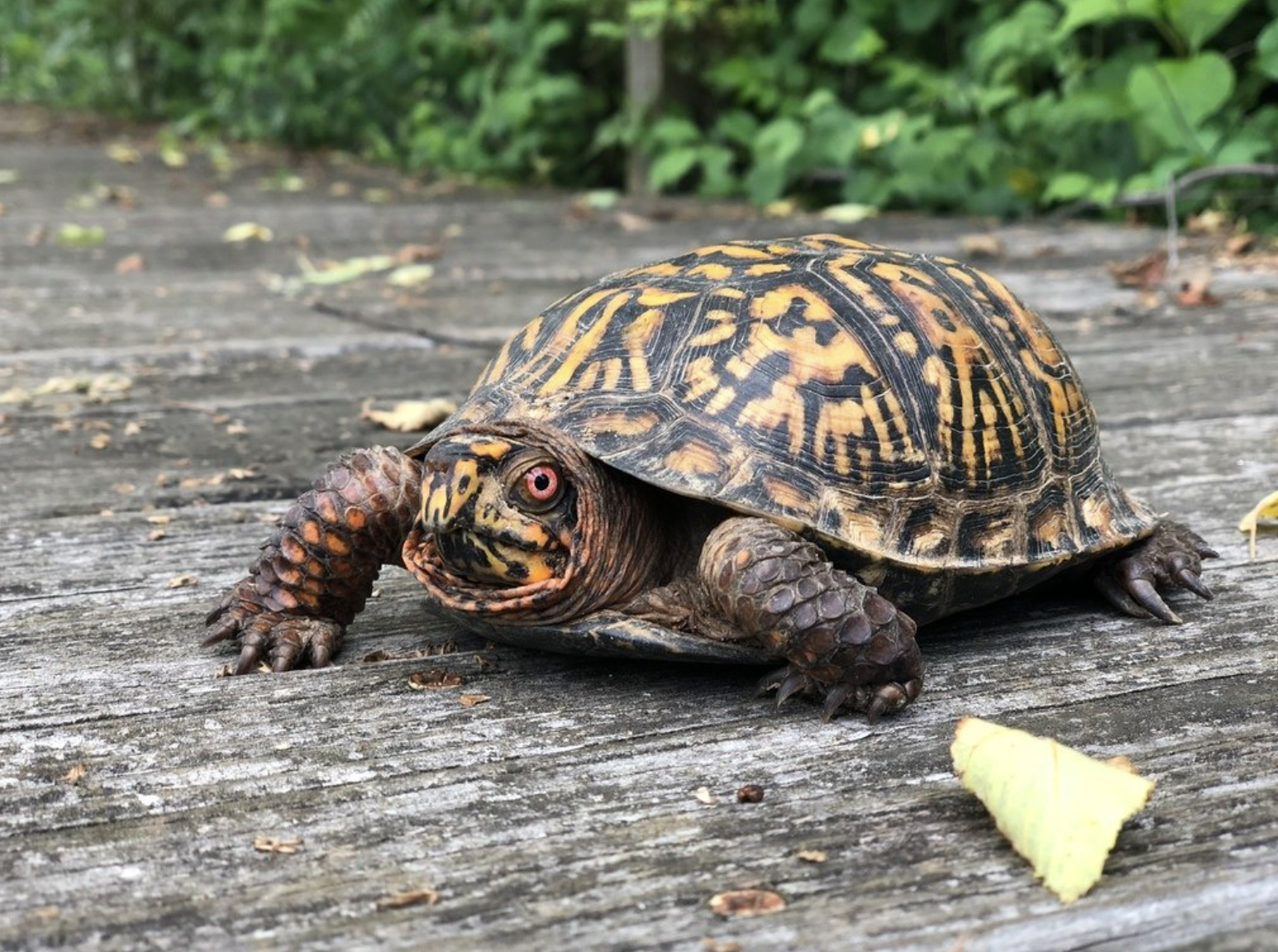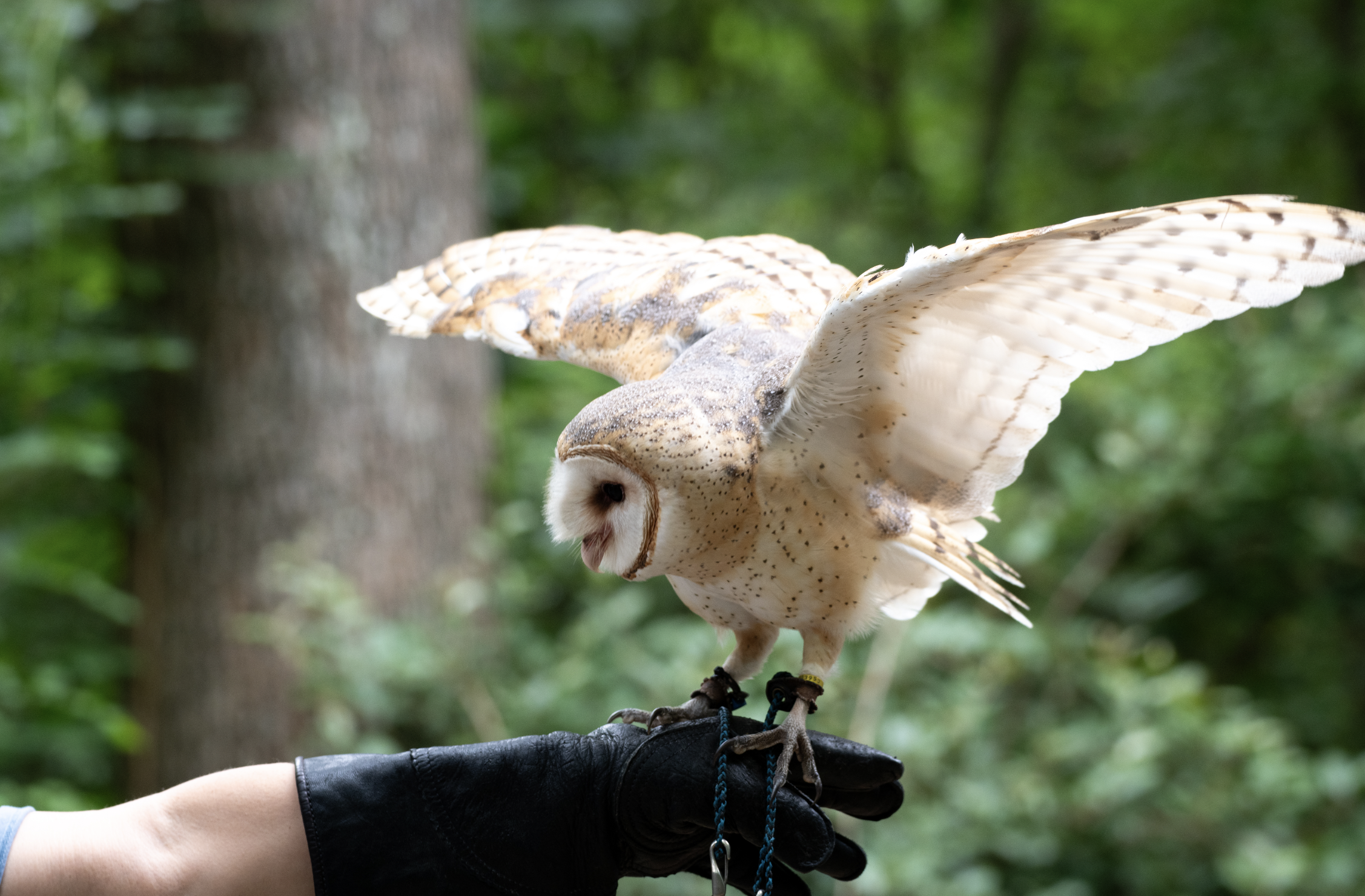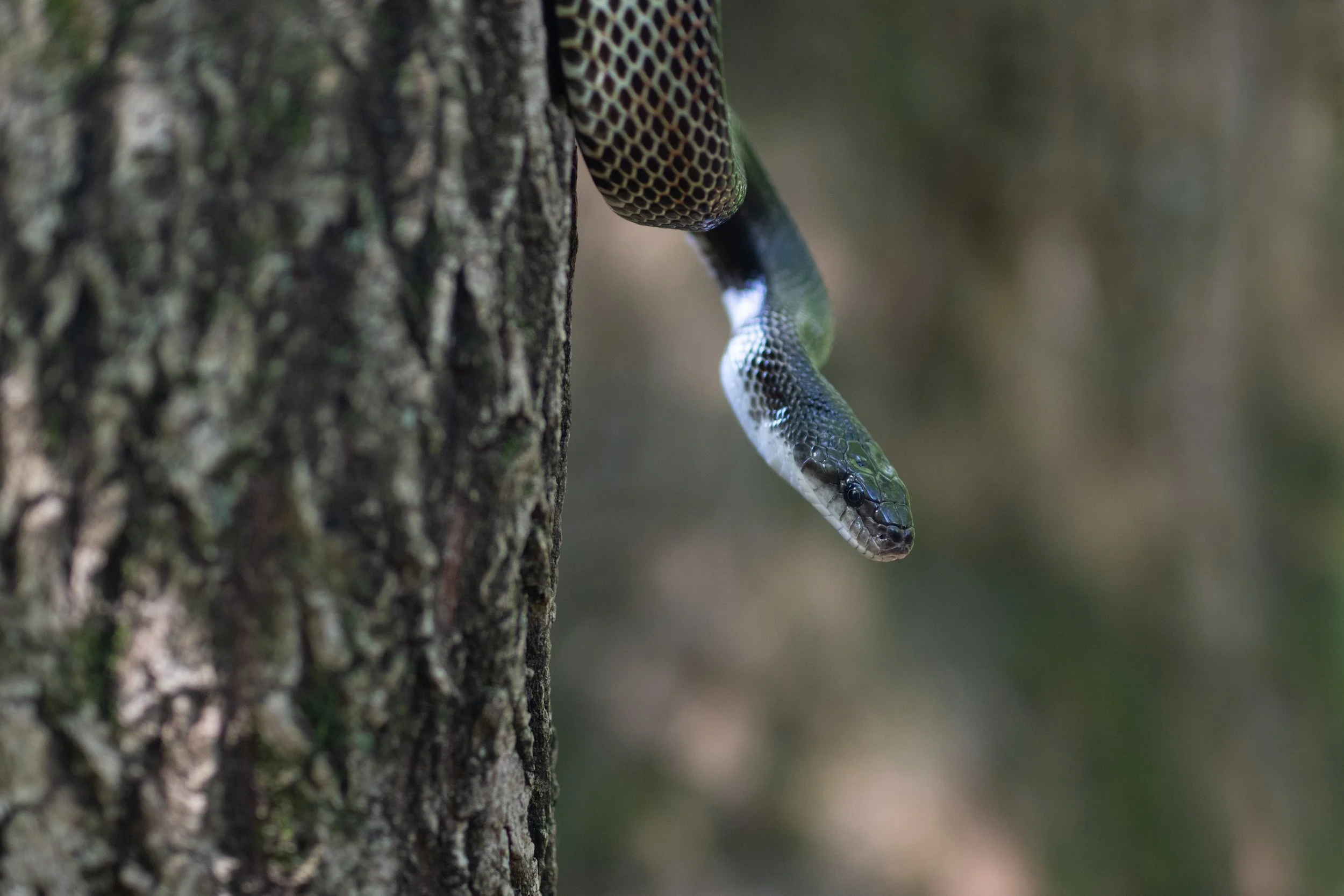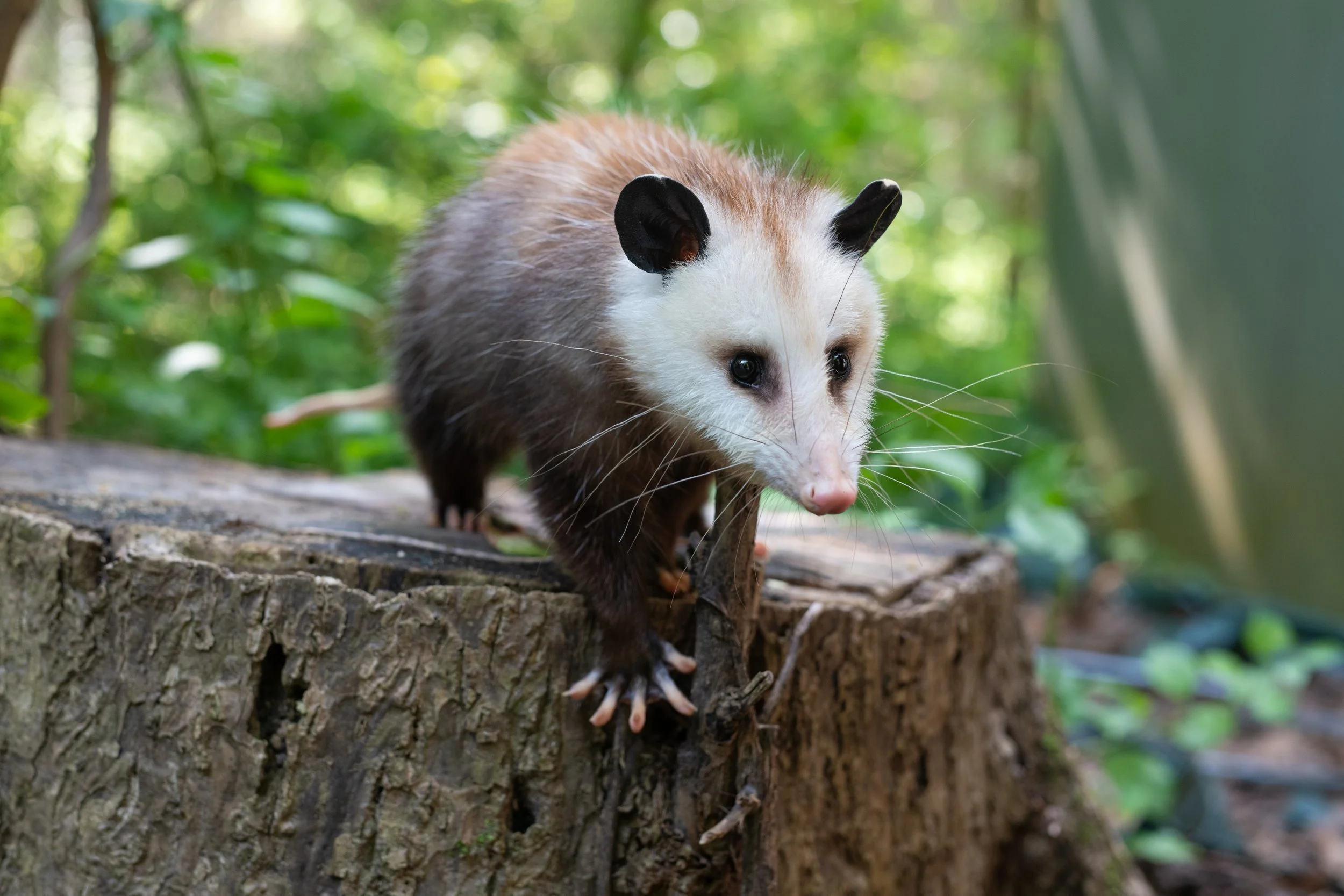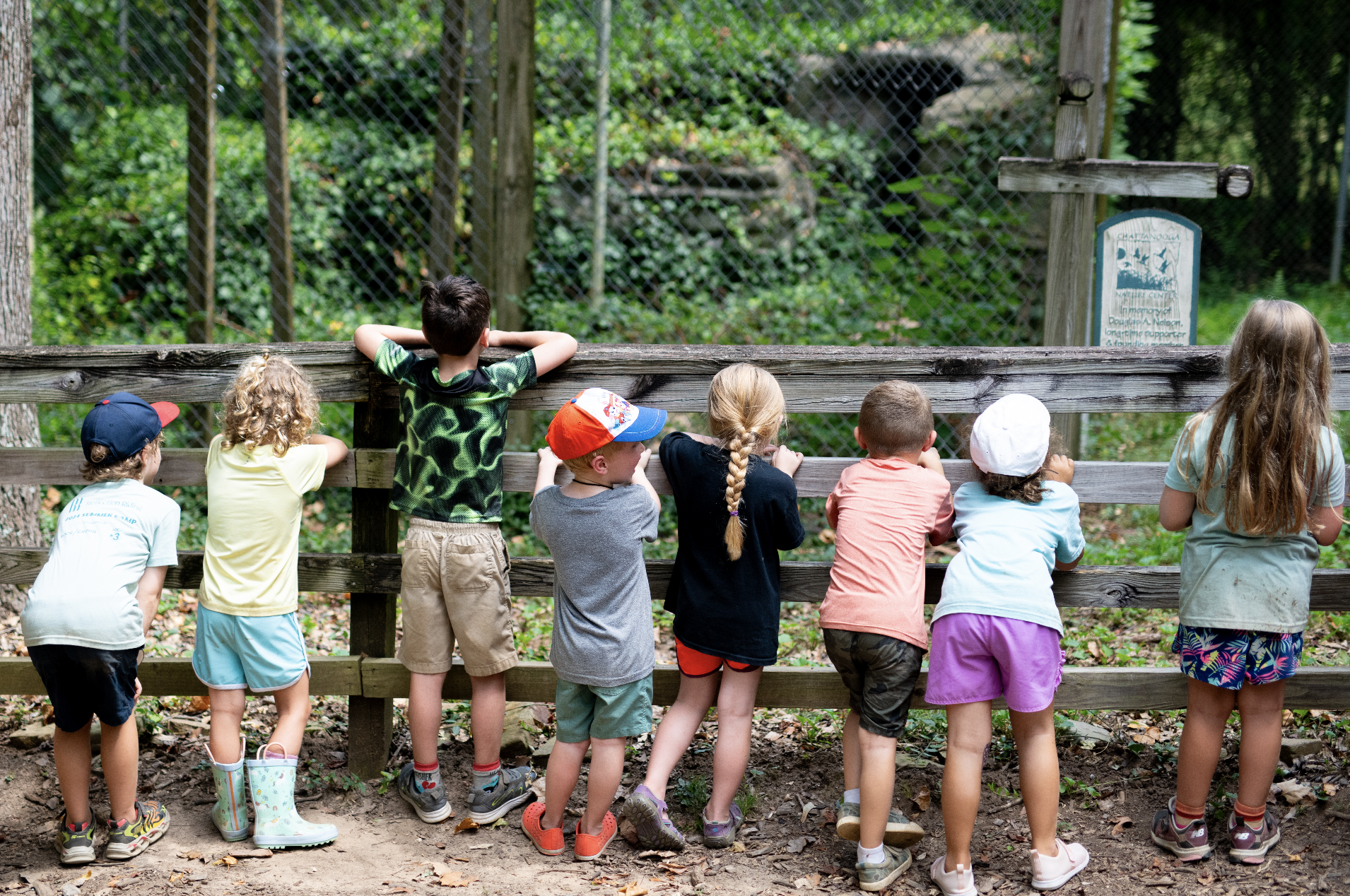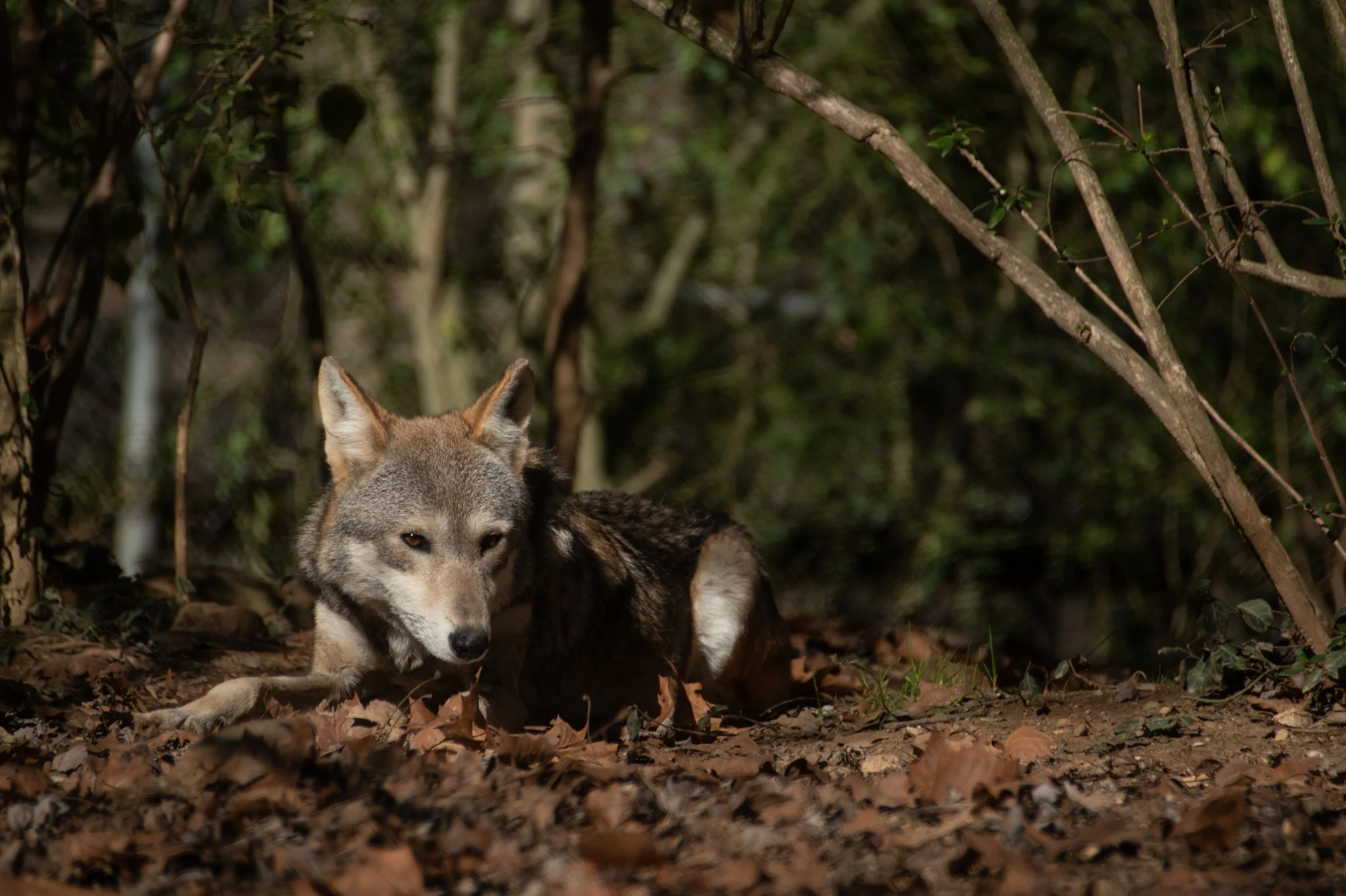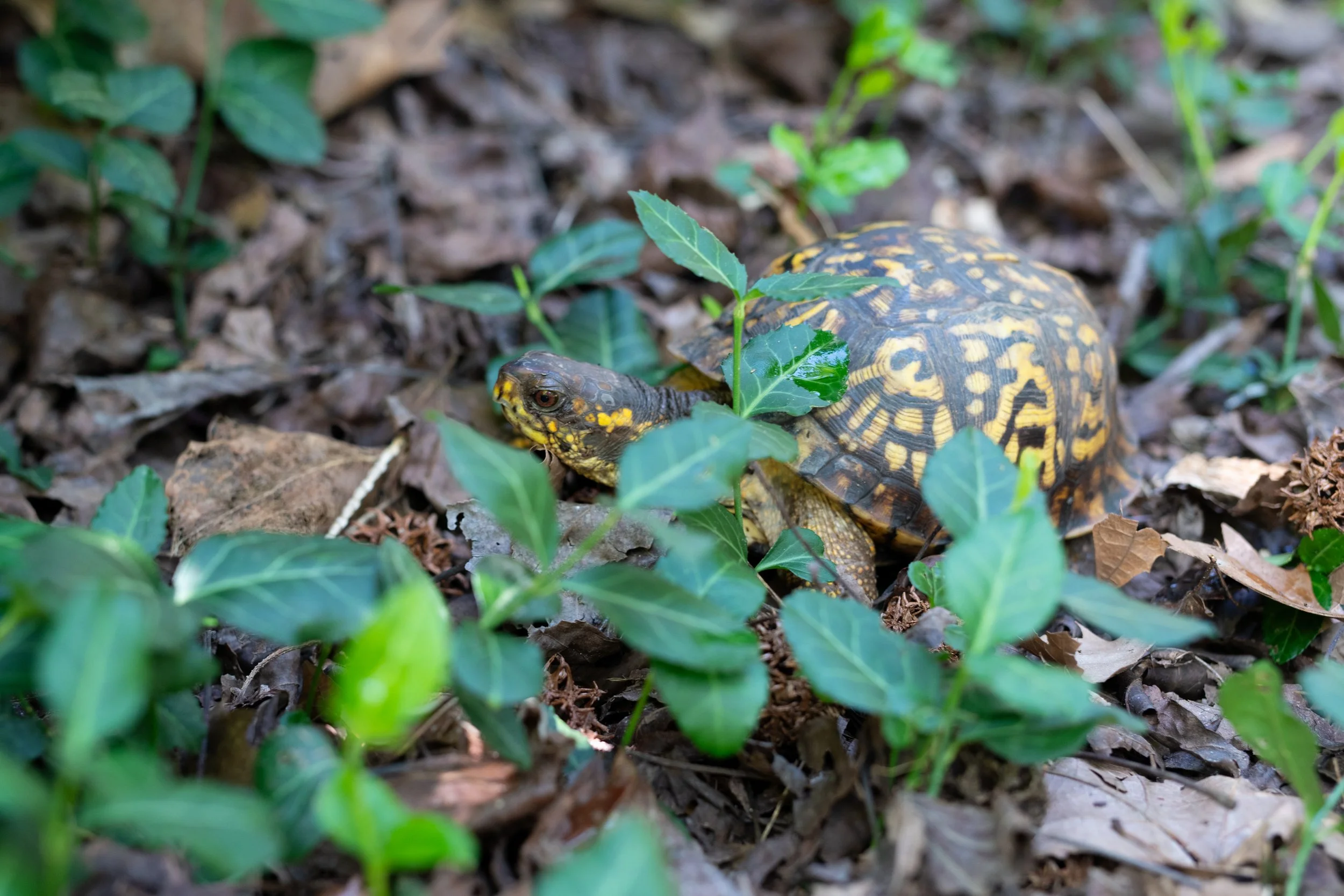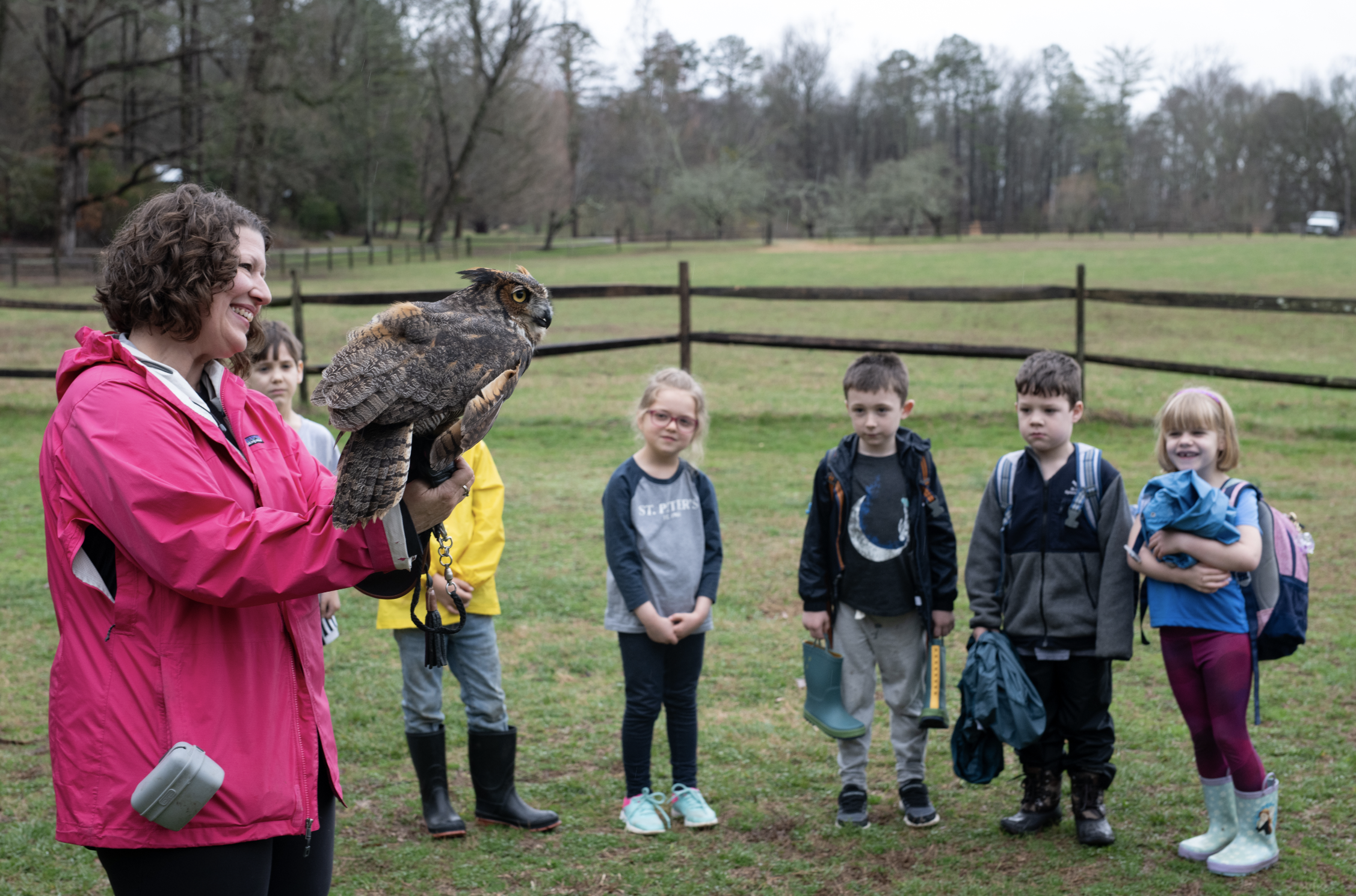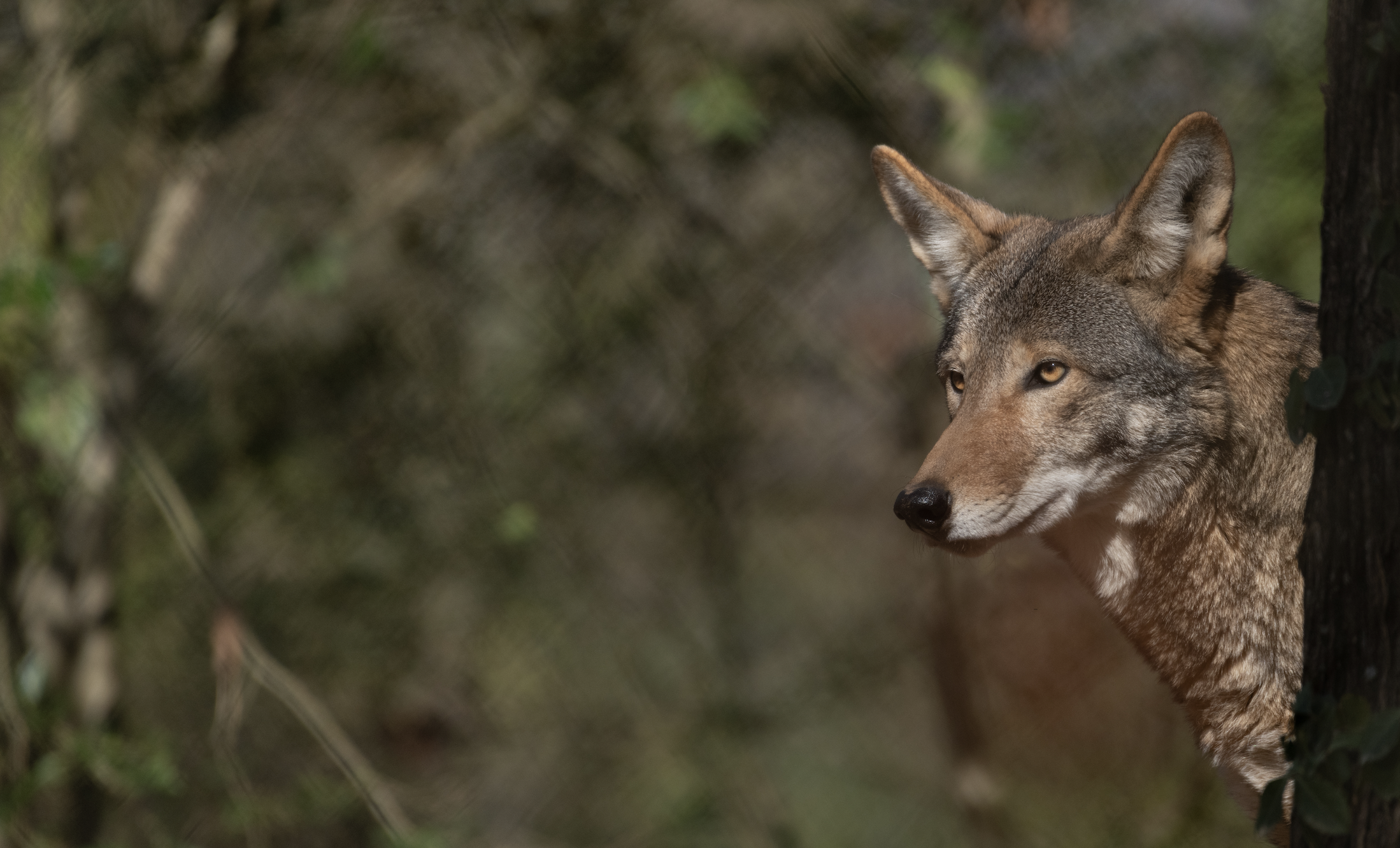
Native Wildlife Sanctuary
We’re conserving wildlife through hands-on projects like the SAFE American Red Wolf program.
Meet the Native Animals of East Tennessee
At our Native Wildlife Sanctuary, we care for unreleasable animals with compassion and conservation. We invite you to tour our sanctuary at Wild Wonders every Friday at 1:30 PM and Saturday at 11 AM and 1 PM, where you'll meet Red Wolves, a Sandhill Crane, a bobcat, and raptors! Whether endangered or a species in need of management, the animals in our care have been affected by humans in such a way that they cannot survive in the wild on their own. Some may have suffered injuries or been kept illegally as a pet, while others may be involved in an AZA SAFE (Saving Animals from Extinction) conservation program. While we do operate as a sanctuary, we are neither a zoo nor a wildlife rehabilitation center. This means our team provides lifelong quality care for the unreleasable animals at our facility; we do not treat and release injured individuals.
We care for a broad collection of wildlife representing 29 species and nearly 40 individuals, all native to East Tennessee. We call them our Animal Ambassadors. We introduce many of these Animal Ambassadors in our educational programs, where they help thousands of school-age children and adults learn more about each species, their habitats, and how we humans can help them.
We have native animal species across five ecosystems: Riparian Zone, Wetland, Grassland, Lowland Woods, and Upland Forest.
Please call 423-497-4482 with any questions about the animals in our care.
Saving Animals From Extinction
We participate in two AZA SAFE programs to conserve native species at risk.
SAFE American Turtle
Turtles across the world face a major threat: the illegal pet trade. In the United States, native turtles are often smuggled and trafficked for profit—endangering wild populations and subjecting individuals to cruel, disease-ridden conditions. The AZA SAFE American Turtle Program works to protect North American turtles through care and conservation. When authorities seize a poached turtle, SAFE partners go into action by screening for disease, providing care, and tracking home ranges through genetic testing. As founding and active members of this program, we care for screened turtles while experts track their natal range. The intention is to return these individuals to their native homeland, where they belong.
SAFE American Red Wolf
The American Red Wolf (Canis rufus) is the world's most endangered canid with 28-31 individuals remaining in the wild (August 2025). As a keystone species, the Red Wolf plays a crucial role in maintaining balance in an ecosystem—by controlling deer and mammal populations, the wolves protect native vegetation from overbrowsing. The AZA SAFE (Saving Animals from Extinction) American Red Wolf program is a nationwide initiative to restore this animal to its native habitat through care, captive breeding, and fostering captive-born pups with wild mothers. At Reflection Riding, we are proud to be one of 50 facilities across the country that care for these resilient animals. We provide care for elderly individuals or those with health concerns, so the wolves in our care are not active in the breeding program.
Educational Experiences For All
At Reflection Riding, we believe that education is the key first step towards conservation, preservation, and a better understanding of the world. Our educational programs aim to cultivate and inspire an interest in science and the importance of nature with hands-on, experiential learning that leaves a lasting impact on kids of all ages. Below you will find forms to book a Field Trip or Behind-the-Scenes Experience. Our Field Trips are broken down by grade and by theme, as well as the option to create your own field trip to align with your class’s current studies. Our Behind-the-Scenes Experiences are great for families or small groups looking to learn more about the natural world and what we offer at Reflection Riding. Requests will be returned as soon as possible, but our educators are often leading programs on campus, so please be patient. Make sure to plan your visit early in order to ensure your preferred date and time. Spring and Fall programs sell out quickly.
“The best field trip we’ve taken so far. My class can’t wait to return to the nature center.”
If you’d like to get involved in local wildlife conservation, we also invite you to check out community science initiatives! We have an active project on iNaturalist where you can see the observations other visitors and our staff have made on the property. Join in the fun from the iNaturalist app or on the website. Whether you recognize the species or not, you can submit photos or audio files and the community will help identify your observation. Additionally, you'll be sharing data with the larger scientific community that can be used later for research. Please obscure the location of sensitive or endangered species. Anything you capture on our property will be automatically added to our iNaturalist project!
